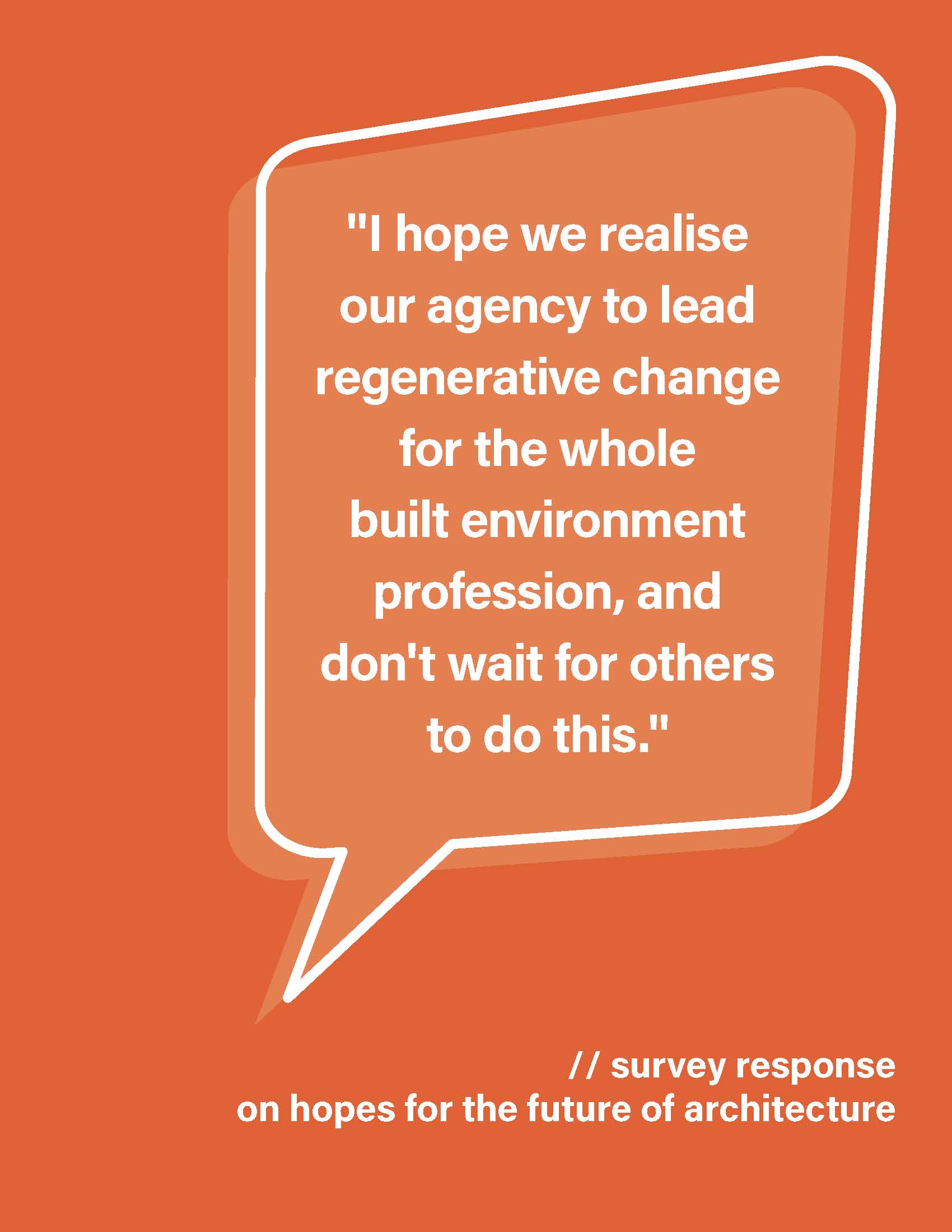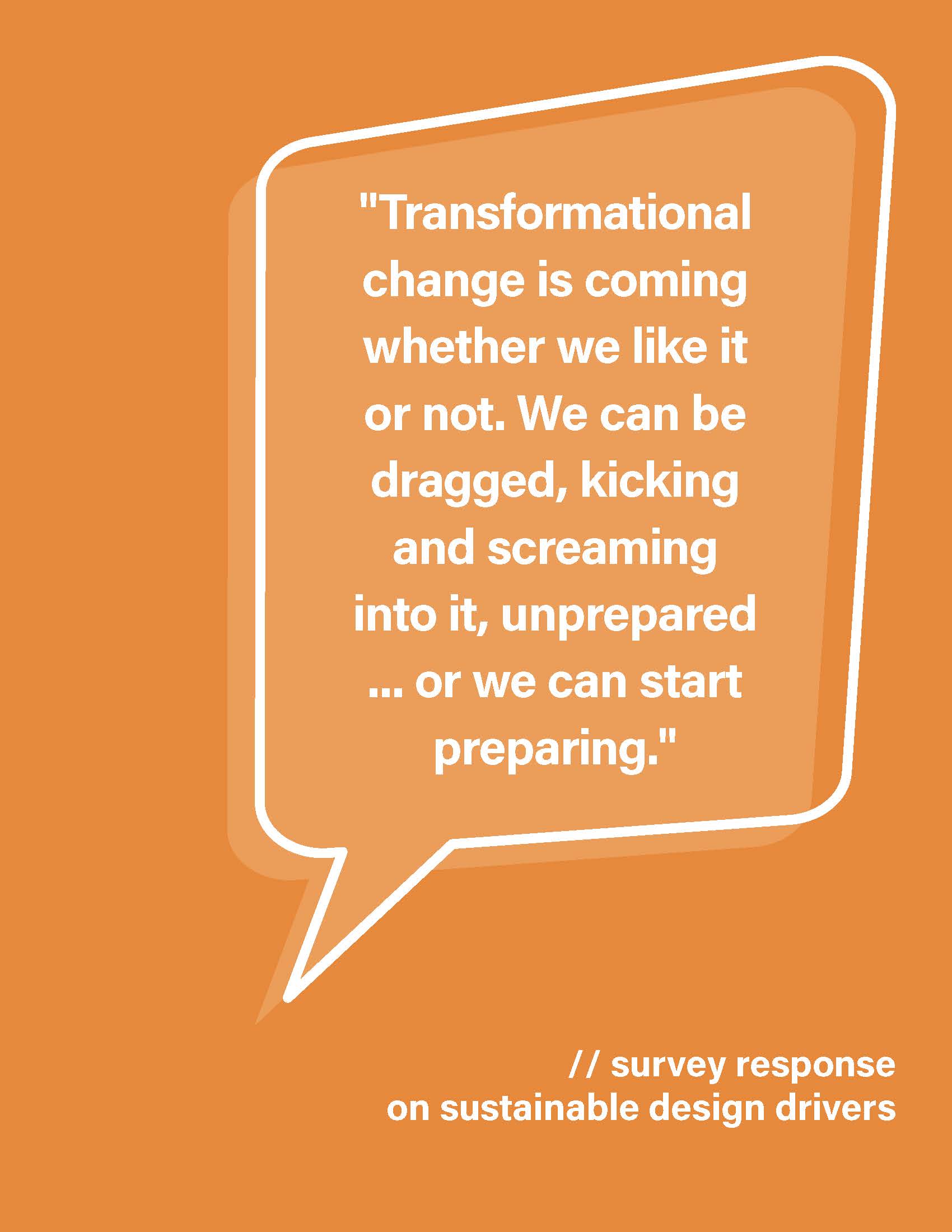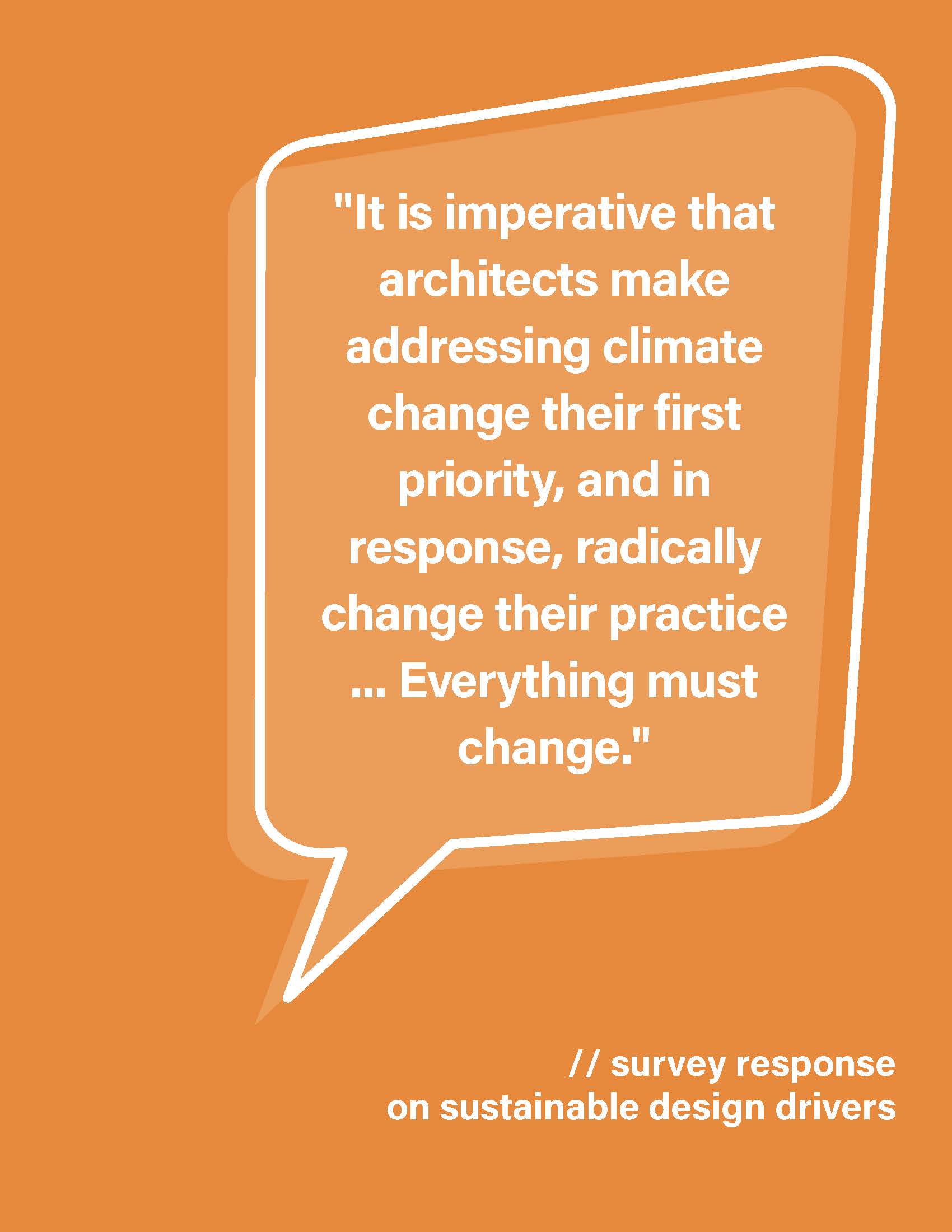The latest Climate Action in Australian Architectural Practice report has been released, and one thing is clear: practitioners in architecture want to see action.
The report, authored by a cross-institutional research team, presents a summary and analysis of 899 responses to a survey of the architecture industry conducted in late 2022. The survey asked practitioners in architecture about their perceptions of the climate crisis, what action they and their practice were currently engaged in, and their hopes for the future of the profession.
The industry survey results reveal that practitioners in architecture are concerned about climate change and want to see more action across the profession: changes to policy, stronger advocacy from industry bodies, more support and resources, and climate information ‘standardised’ were among the key desires. Many practitioners feel obstructed by barriers at multiple levels, rely on self-education to upskill, and are overwhelmed by the number of different rating systems and tools available.
The report states practitioners feel a strong sense of responsibility and that climate change is generating an increasingly multifaceted role for architects to fulfil. However, practitioners are forming new connections to address climate and sustainability issues; many are actively engaged in sustainable practice through their work, and they are confident in their ability to build new sustainability knowledge and skills.
Some of the key findings include:
- 95% of practitioners agree that architects should be part of the solution for climate change issues.
- 93% of practitioners are concerned about climate change and want to see more climate action.
- 91% want to see policy and regulation change to better support climate action in architectural practice.
- 83% of practitioners are using self-education to up-skill about climate and sustainability issues.
- 79% of workplaces are actively involved in sustainable practice.
- 5% of small practices are certified net zero practices compared to 25% of large practices.

The report structures the results according to six main themes:
- Build Agency: Harness high levels of motivation for change.
- Overcome Inertia: Embrace changes to practice by up-skilling.
- Advocate: Drive change from top down and bottom up.
- Build Knowledge: Construct a sustainability knowledge framework.
- Connect: Collaborate across boundaries.
- Choose Hope: Actively imagine a sustainable future.

In addition to sharing the survey results, the report also offers ‘key recommendations for action’ within these six themes, broken down as relevant to practitioners, practices, industry bodies, and policy and governance. The recommendations range from seeking ongoing education and joining climate advocacy groups at the practitioner level, to raising sustainability standards, boosting research grant funding for sustainability projects, providing funding and incentives for practices to up-skill, and requiring that First Nations cultural knowledge and sustainability is incorporated into all build environment projects at the policy and governance level. The document is presented as a solutions-oriented guide to climate action for architects in Australia.
The 2022 industry survey was undertaken as part of a broader research project that aims to drive climate action in architecture across education and practice, as well as identify what new knowledge and skills are required for the profession to proactively respond to the climate crisis.

In 2021, the team surveyed all architecture schools in Australia and New Zealand for the Climate Literacy and Action in Architecture Education report. Together, the reports offer a broad overview of climate action and literacy across the entire pipeline of the architecture profession – from undergraduate students to academics, practicing architects, and company directors.
This research was possible thanks to generous support from the Association of Architecture Schools of Australasia (AASA) and Australian Institute of Architects, as well as the dedicated efforts of a cross-institutional research team: Liz Brogden (The University of Queensland), Kavita Gonsalves (The University of Queensland), Philip Oldfield (The University of New South Wales), Charlotte Kessler (The University of Queensland), Chris Knapp (Building 4.0 CRC), Naomi Stead (RMIT University), Dagmar Reinhardt (The University of Sydney), Gina Engelhardt (The University of Queensland), and Naima Iftikhar (Western Sydney University).
The full report, published by Architecture Climate Futures, can be found here. (PDF, 14.3 MB)



